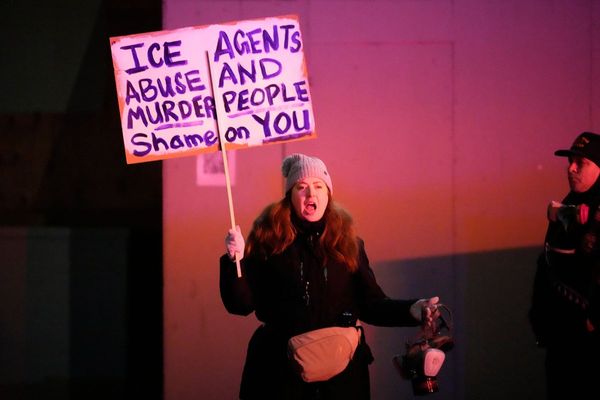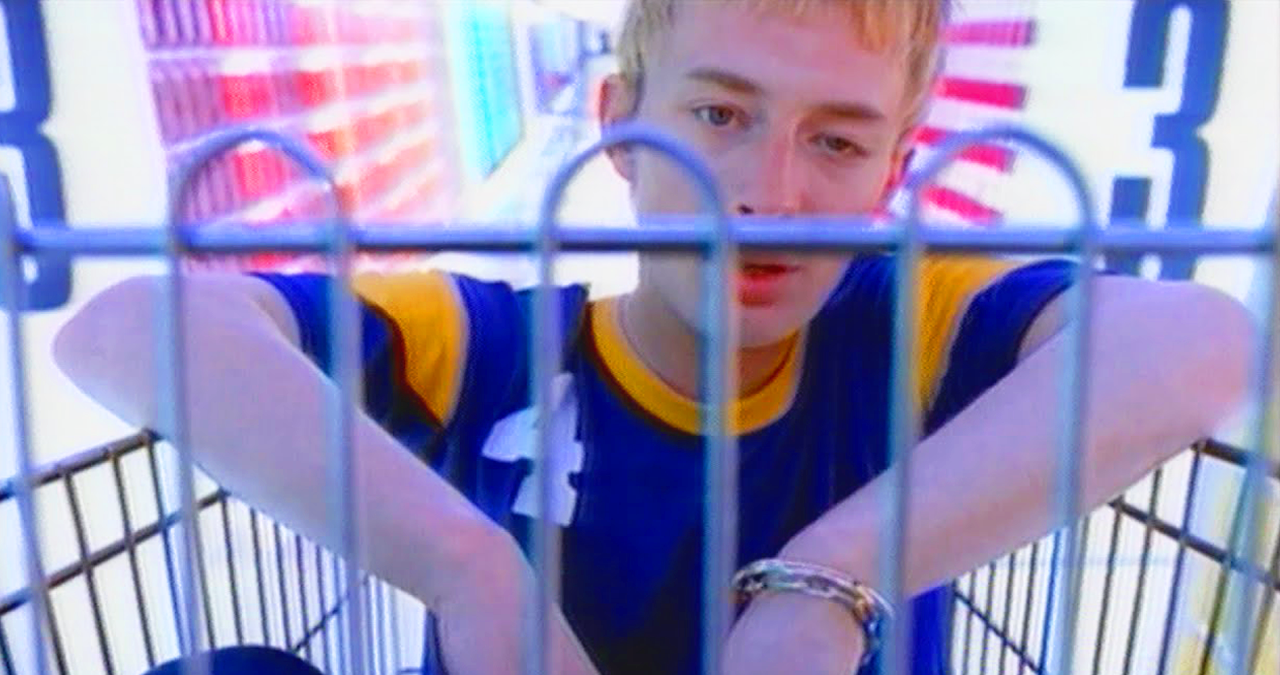
At the mid-point of the 1990s, Radiohead were in crisis. Having exploded into the public consciousness with indie grunge anthem Creep, the Oxford quintet were struggling with their identity
The Thom Yorke-led five were eager to dive into the more alluring waters of experimentation, and dispense with the more commercially-angled likes of Creep.
Try arguing that to the powers that be, however. Not convinced by their band’s rejection of the more lucrative route, it was starting to be suspected by UK label Parlophone and US label Capitol that Creep might have been an aberration.
It was feared that not only were the band not capable of reproducing it, but that they really didn't want to.
There was a drought, therefore, in the radio-friendly hooks department as the group set to work on album number two…
But, just as the ideas got more interesting, the distinct feeling that their hard-won success was eroding was starting to become a reality. Capitol distanced itself, withholding the second album option until they heard something that was worth their clout.
Preferably, that something should smell a little Creep-ier.
Detecting blood in the water, the band’s management too, were quietly already on the lookout for their next band focus, predicting that the Radiohead train was about to derail.
Beyond the professional anxiety, Radiohead’s chief songwriter and vocalist Thom Yorke realised that something bigger was not right with himself both mentally and physically. “Mentally I’ve had enough,” Yorke told NME at the time.
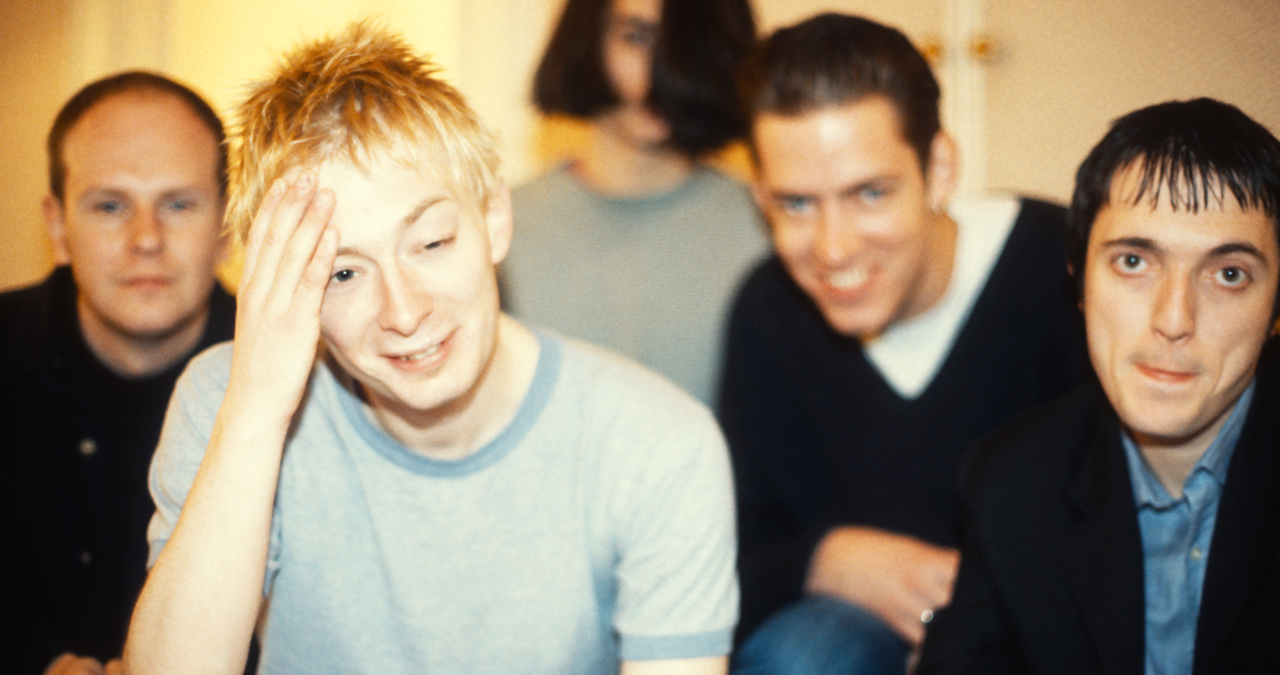
Understandably, the mood in camp Radiohead was bleak. Old tensions, thought long-buried came to the surface as Yorke and bandmates Jonny and Colin Greenwood, Ed O’Brien and Philip Selway had it out within the safety of their Oxford-based rehearsal room.
“It all just came out. All the stuff that we'd always been fighting and I think, when we started our little band, when we were kids at school, it was never really about being friends or anything,” Yorke told NME. “Years and years of tension and not saying anything to each other, and basically all the things that had built up since we'd met each other, all came out in one day. We were spitting and fighting and crying and saying all the things that you don't want to talk about and I think if we hadn't ever done that, I think that completely changed what we did.”
It was decided that a change of location - and an astute figure at the mixing desk - was clearly needed to breathe life into Radiohead’s difficult second album.
Perhaps The Stone Roses’ production mastermind John Leckie would fit the bill? Leckie’s initial brief, prior to taking on the full album however, was to isolate and bottle the single within Radiohead's sprawl of new material.
“I went to a rehearsal on a fruit farm out in the wilds near Oxford,” Leckie recalled in an interview with Gearspace. “Sitting in the room were myself, two managers, A&R Parlophone UK and A&R Capitol USA all to hear the new [Radiohead] songs. The band played 30 songs, all played with passion and a lot of flaying of heads and hair. The objective was to choose a single to record to follow up to Creep, which of course the band hated.”
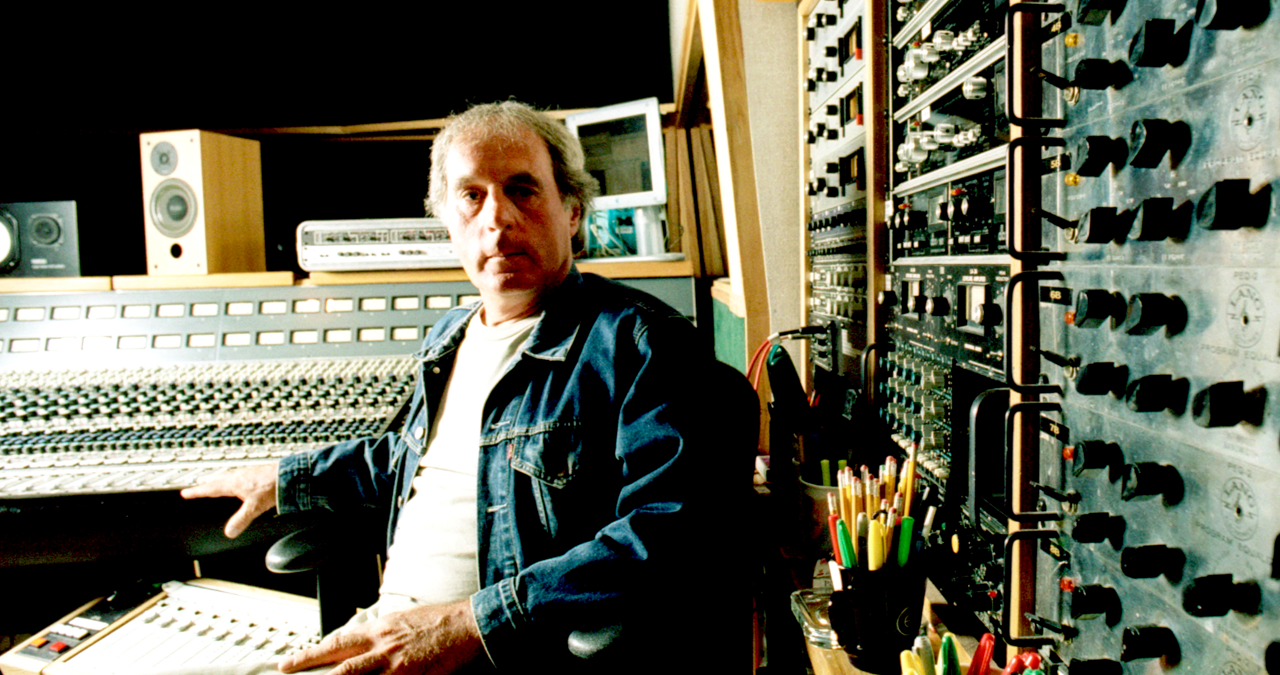
After some initial single sessions, Leckie, his assistant (a young man by the name of Nigel Godrich…) and the the band cut the remainder of what would become The Bends across RAK Studios, Manor Studio in Oxford and Abbey Road Studios.
Leckie worked with the band to nurture their ideas, pushing both towards those radio-friendly hooks so craved by Parlophone and Capitol, yet still allowing space for them to widen their creative canvas.
Though some songs had slow, painful births, one key track, the tender, heartbroken gem Fake Plastic Trees seemed to originate fairly spontaneously from Yorke one day in the studio. Its writer would keep it largely to himself as the band worked on other ideas.
"Usually we write a song all together, compose it as a whole. [Fake Plastic Trees] was done by Thom just playing by himself, gradually adding one thing at a time. It's all very considered, in a good way,” Greenwood told The Nashville Banner in 1995.
This introspective, acoustic piece encapsulated Yorke’s innermost anxieties. His myriad fears and frustrations were channelled into lyrics that read as both semi-profound, yet characteristically wry.
Though obfuscating their meaning, Yorke's words were heavy with the sad weight of inevitability. One of his self-described ‘nifty phrases’ went as follows…
“He used to do surgery
On the girls in the eighties
But gravity always wins”
It was quite different to everything else so far on the board for The Bends, and sounded like the skeleton of something potentially great.
But, deciding what to do with it from an arrangement and recording point of view became a head-scratcher for Yorke and Leckie.
With various different arrangements leading to dead ends, Leckie was becoming concerned. Not anticipating the difficulty in getting the basic track down, he'd hastily pre-booked string players to come in and overdub on the as-yet unrecorded track the following day.
He suggested that Thom and the group leave the studio and go and see a performance from Jeff Buckley over at London’s The Garage before returning later in the evening to try and finally nail Fake Plastic Trees.
At the Buckley show, Yorke, Greenwood and Leckie were utterly captivated by this Californian's expansive emotional range, and the sheer power that just one individual could conjure via a guitar and hyper-malleable voice.
“He just had a Telecaster and a pint of Guinness. And it was just amazing, really inspirational,” Colin Greenwood told Uncut. “Then we went back to the studio and tried an acoustic version of Fake Plastic Trees. Thom sat down and played it in three takes, then just burst into tears afterwards. And that’s what we used for the record.”
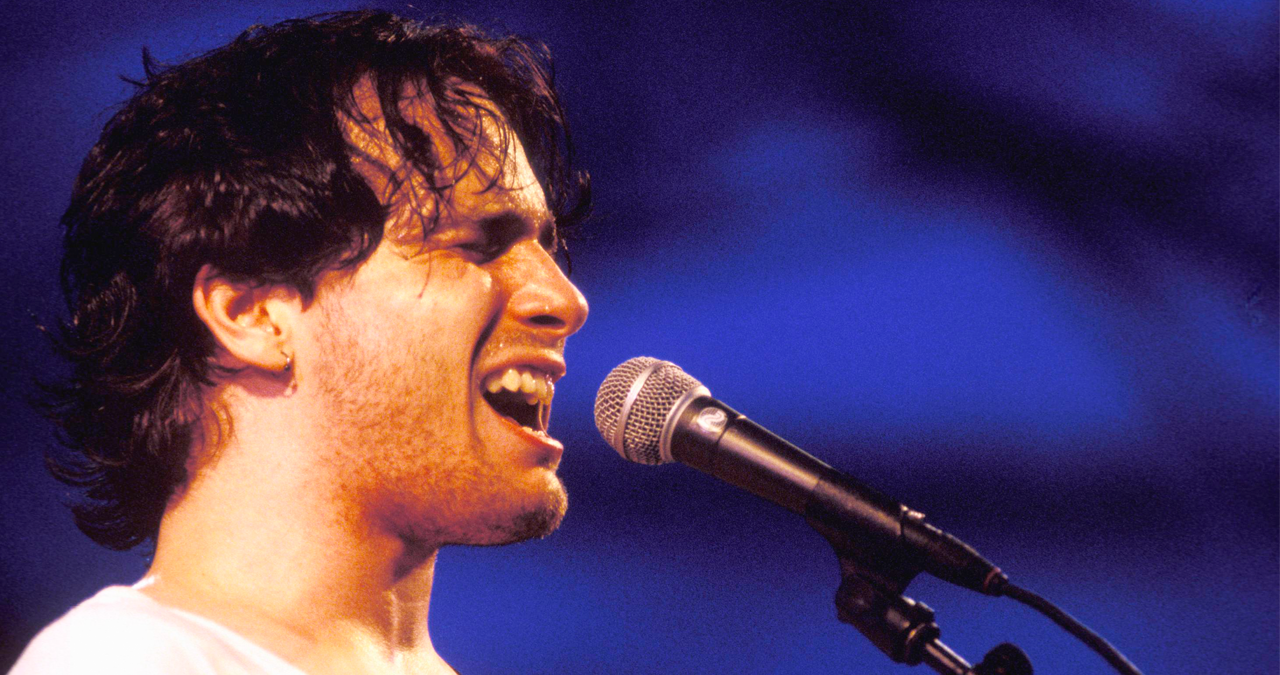
Buckley’s riveting performance had clearly stirred something deep within Thom that night, as he let loose a dynamic, dramatic performance which rose from intimate and soft to histrionic, snarling and, in a word, breathtaking.
It wasn't just Fake Plastic Trees that suddenly came alive, but the entire journey of making The Bends was suddenly galvanised in Thom's mind.
“[Fake Plastic Trees] was very much a breakthrough on the album,” Thom later told The Denver Post. “The day we recorded that song was a complete nightmare. It was just me and my acoustic guitar, but there was something chilling hanging around in the air. We'd been there for a month, and that was the first time I felt any connection with what Radiohead's about.”
Leckie recalled some of the technical detail of that recording in his Gearspace interview: “He has a [Shure SM] 57 and [Neumann] U67 on his guitar, U47 on vocal and as soon as he starts the 67 packs up with hum and fizzing so the acoustic is just 57 but the guitar was a strange resonant acoustic in highly polished blonde wood and it really didn't matter what mic you used. It was a great first take and the whole dynamic of the track was governed by his vocal performance.”
Fearing that his pure, raw emotion might be a little too much to be actually useable on-record, Thom was at first a bit embarrassed about what had just been taped. He was skeptical about using the takes. But Leckie and the rest of Radiohead were overawed by what Yorke had achieved.
“When we came together to listen to it, the others said, ‘We’ll use that!’ and I was, ‘No, no, we can’t use that, it’s too vulnerable. That’s too much me,” Yorke remembered in the podcast, The Singer’s Talk. The band won, and the final studio version is the performance captured that night (across three takes).
With the foundation of Fake Plastic Trees in the bag, it then took Leckie and the rest of the band a further few months to polish the track, adding some heavenly Hammond organ and some gnarly Greenwood guitar.
“We had [the Hammond] plugged into all the guitar amplifiers, every single effect, all the knobs and switches going. It was deafeningly loud, filling up the whole studio,” said Yorke in the same interview. “That song could have easily sounded like Guns N' Roses. We wanted it to sound like Phil Spector."
Ed O’Brien reported to Guitar World on reflection years later that when it came to The Bends, the band were increasingly comfortable leaving Thom in the limelight, “We were very aware of something on The Bends that we weren’t aware of on Pablo Honey - if it sounded really great with Thom playing acoustic with [drummer] Phil [Selway] and Coz [bassist Colin Greenwood], what was the point in trying to add something more?”
Released as The Bends’ third single, the poignant, tear-inducing Fake Plastic Trees was clearly the song of The Bends, an album that, for many, really served as the first major entry in Radiohead's considerable musical canon (there are those that still rate Pablo Honey, however.)
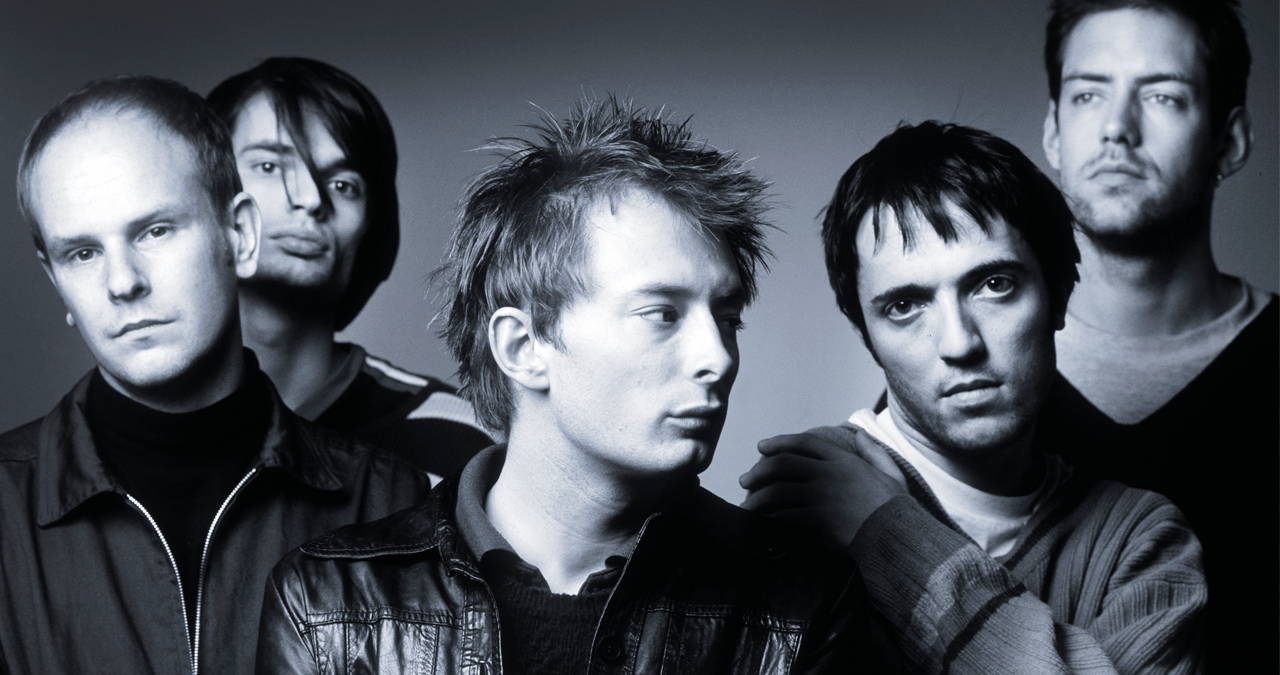
It’s perhaps the late, great Buckley’s influence that we must thank then, for inspiring Yorke to pull that soul-touching vocal performance out of himself.
Thom confirmed it on The Singer’s Talk. "When we were doing the second record, I went to see Jeff Buckley before he died. And it reminded me of this vulnerable part of me that I was choosing to hide."





